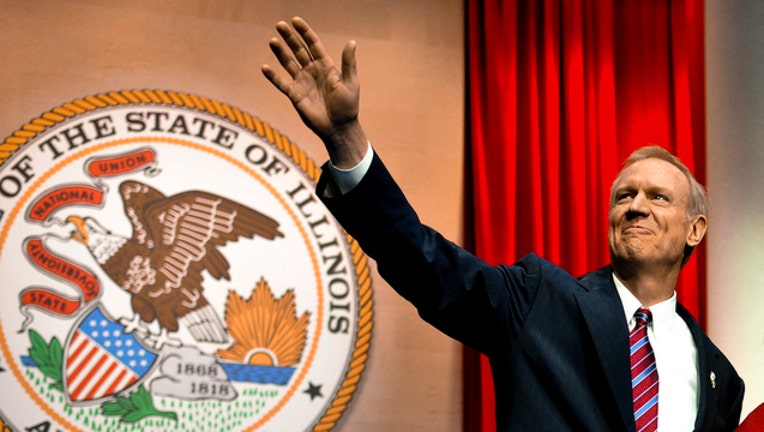Rauner eliminates clemency backlog; some cases dated to 2003

(182nd Airlift Wing / Flickr)
CHICAGO (AP) - Gov. Bruce Rauner has eliminated a backlog of more than 2,000 clemency requests he inherited from previous governors, in what the Republican said is part of his effort to improve Illinois' criminal justice system and help some people convicted of crimes go on to lead productive lives.
Some of the applications were filed more than a decade ago. They piled up under now-imprisoned former Gov. Rod Blagojevich, a Democrat who acted on about 1,000 of the nearly 4,000 cases filed in about six years, according to Prisoner Review Board reports.
"I think our criminal justice system hasn't served our residents well, and we're trying to change it," Rauner said Monday. "(Clemency) is an extraordinary measure, not something that's granted lightly. But each request should be respected and treated on a timely basis."
He said offenders and their families deserve an answer "so they can move on and have options in their lives."
Out of the 2,333 applications Rauner has acted on since becoming governor in 2015 he granted about 80 pardons, or about 3 percent of the requests. He granted three commutations, his office said.
People can seek pardons after they've finished serving a sentence. If a pardon is granted, the offender may go to court to have the conviction removed from their criminal record. With a commutation, a sentence is reduced or terminated while the person is serving it.
Rauner's predecessor, Democratic Gov. Pat Quinn, acted on about 4,000 cases, according to Prisoner Review Board reports. He granted more than a quarter of the pardons requested and roughly a dozen commutations. They included a reduced sentence for a woman who killed her husband by dousing him with gasoline and setting him on fire while he slept. The woman, Tammy Englerth, said in her clemency petition that her husband abused her "in every way imaginable."
Rauner acknowledged he granted requests at a far lower rate than Quinn, but noted that in some states such as Alaska or Arizona governors have gone years without issuing a single pardon.
Most of the pardons Rauner granted were for non-violent crimes such as forgery, drugs or theft. He has been criticized for denying other cases, including a request for posthumous clemency for a man who was imprisoned for stabbing an elderly woman. Rauner rejected it even though a serial killer confessed to the crime more than a decade after Grover Thompson died while serving a 40-year-sentence.
Rauner said that before making a decision, he reviews the Prisoner Review Board's recommendation and consults with some senior staff and Lt. Gov. Evelyn Sanguinetti.
He said he considers whether a person has had an otherwise clean criminal record and whether the person has given back to the community through the military or other service. He also said the person must have "a need for clemency," such as to get a job or a professional license.
Among those he pardoned was Elizabeth Helton, who was convicted at age 17 of attempted armed robbery. At the time, Helton said, she had already been in treatment for substance abuse, wasn't going to school and was "a kid without a real understanding of the consequences."
The Bloomington resident earned her GED in jail and later earned a master's degree in social work from Illinois State University. She's now 33 and a social worker at the same facility where she once was a client. But with the felony on her record, she couldn't become a licensed clinical social worker. Now she'll be able to make more money and have more career options, she said.
"It's life changing," Helton said. "I've spent my adult life with the weight of the decisions I made as an adolescent on my shoulders."
Last month, Rauner pardoned a 79-year-old decorated Vietnam War veteran who pleaded guilty to reckless homicide after the car he was driving crashed more than 50 years ago, killing his best friend. Patrick McNamee said he wanted his record cleared so he could get a concealed carry firearms permit.
Rauner created a commission on criminal justice and sentencing reform last year with a goal of reducing the prison population by 25 percent by 2025. He's also signed legislation to help former prisoners get professional licenses and to make it easier for ex-offenders to have their records expunged.

